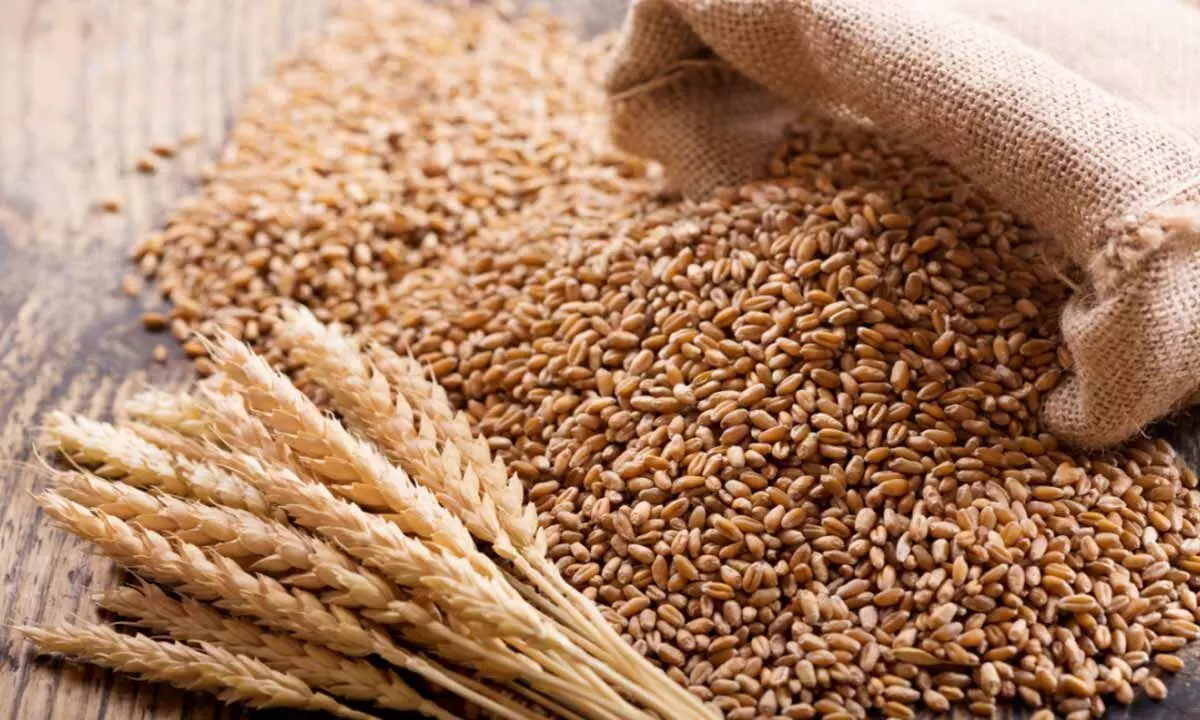Heatwave, reduced wheat production credit negative for India: Moody's
High climatic temperatures affecting northwest India curbing wheat production and possible extended power outages exacerbating already high inflation and hurting growth is credit negative, said Moody's Investors Service on Monday.
image for illustrative purpose

Chennai, May 23 High climatic temperatures affecting northwest India curbing wheat production and possible extended power outages exacerbating already high inflation and hurting growth is credit negative, said Moody's Investors Service on Monday.
The credit rating agency in a report said: "Over the longer term, India's highly negative credit exposure to physical climate risks -- which contributes to the country's highly negative environmental risk issuer profile score and credit impact score -- means its economic growth will likely become more volatile as it faces increasing, and more extreme, incidences of climate-related shocks," Moody's said.
The Indian government has revised down its estimates for wheat production by 5.4 per cent to 105 million tonnes for the crop year ending June 2022, given lower yields amid higher temperatures, Moody's said.
The lower production, and fears that a surge in exports to capitalise on high global wheat prices would add to inflationary pressures domestically, has prompted the government to ban the export of wheat and to divert it toward local consumption instead.
Although the move will partially offset inflationary pressures, it will hurt exports and subsequently growth. The ban comes at a time when India -- the world's second-largest wheat producer -- could have been capitalising on the global output gap from wheat following the Russia-Ukraine military conflict, Moody's said.
Global wheat prices have jumped 47 per cent since the conflict began in late February.
According to Moody's, the wheat export ban is likely to induce further surge in wheat prices in importing countries like Bangladesh, which absorbed 56.8 per cent of India's wheat exports in fiscal 2021, Sri Lanka-8.3 per cent, UAE - 6.5 per cent and Indonesia - 5.4 per cent.
Additionally, elevated power demand amid the heatwave and an uptick in economic activity -- resulting in higher domestic power prices -- prompted India's Central Electricity Regulatory Commission (CERC) to cap power prices at Rs 12 per kilowatt-hour in the electricity exchanges.
With suppliers importing coal at market rates to fill the shortfall and inadequate supply to meet peak demand, at least 16 out of 28 states experienced 2-10 hours of power outage per day in April, Moody's said.
After the price ceiling was introduced on April 1, India's total domestic coal actual stock fell 23 per cent by mid-May, with days of actual stock declining to 7.8 days from 10 days.
Further drawdowns in coal inventory could lead to prolonged power outages in industrial and agricultural production, leading to significant cuts to output and weighing further on India's economic growth -- particularly if the heatwaves continue beyond June.
Inflation will be partially alleviated by keeping wheat production for domestic consumption and the cap in power prices in exchanges, as well as the Reserve Bank of India's 40-basis-point policy rate rise in early May.
However, given the prominence of cereals and food more generally in India's consumption, elevated food prices could add to social risks if they persist.

